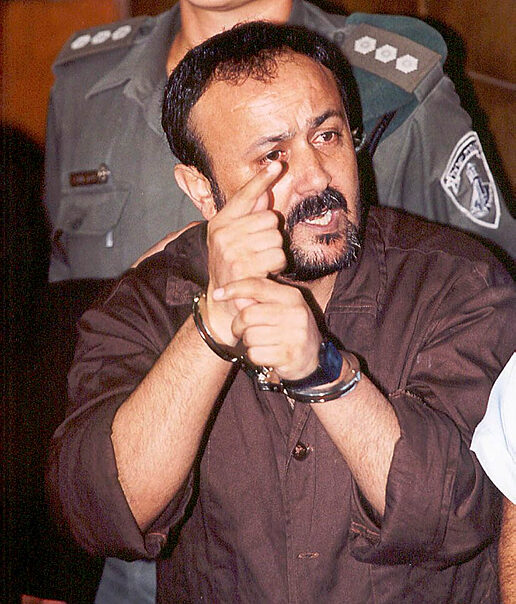Palestinian terrorists held in Israeli prisons launched a hunger strike demanding better conditions.
Some 1,200 Palestinian terrorists held in Israeli prisons launched a hunger strike on Monday, in what their leader behind bars called a new step in the Palestinians’ “long walk to freedom.”
The 1,200, of about 6,500 Palestinians held by Israel for terrorism, joined the open-ended protest, the largest such strike in five years.
The hunger strikers’ immediate demands include more contact with relatives, improved medical services, and more access to educational materials.
In the Palestinian Authority and Gaza, thousands staged solidarity marches Monday to mark Prisoners’ Day.
The hunger strike is led by Marwan Barghouti, a prominent figure in the Fatah movement. Over the years, polls have indicated that Barghouti is the most popular choice among Palestinians to succeed current PA head Mahmoud Abbas.
Barghouti, a terror leader, was arrested in 2002 and convicted on multiple counts of murder. Israel charged him with directing suicide bombings against its citizens and he was sentenced to five life terms.
Barghouti is one of the best-known among thousands of Palestinians jailed for charges ranging from stone-throwing and membership in terror groups, to attacks that wounded or killed Israelis.
In an op-ed published in The New York Times, Barghouti wrote Israeli prisons have become the “cradle of a lasting movement for Palestinian self-determination.”
“This new hunger strike will demonstrate once more that the prisoners’ movement is the compass that guides our struggle, the struggle for Freedom and Dignity, the name we have chosen for this new step in our long walk to freedom,” he wrote.
In a punitive measure, Israel’s prison service transferred Barghouti to solitary confinement in a different prison. Barghouti violated the conditions of his incarceration by communicating with the newspaper and likely smuggled out the text through his lawyer.
Prison Service spokesman Assaf Librati refused to elaborate on Barghouti’s role.
“The strike is a decision of the prisoners. We are containing the situation and monitoring its developments,” he said.
The prison service has set up a field hospital near the Ketsiot prison in the south to treat prisoners who require medical attention.
Qadoura Fares, who runs the Palestinian Prisoners’ Club advocacy group, claims that over 1,500 prisoners joined the strike and more are expected to follow.
By: AP and World Israel News Staff


